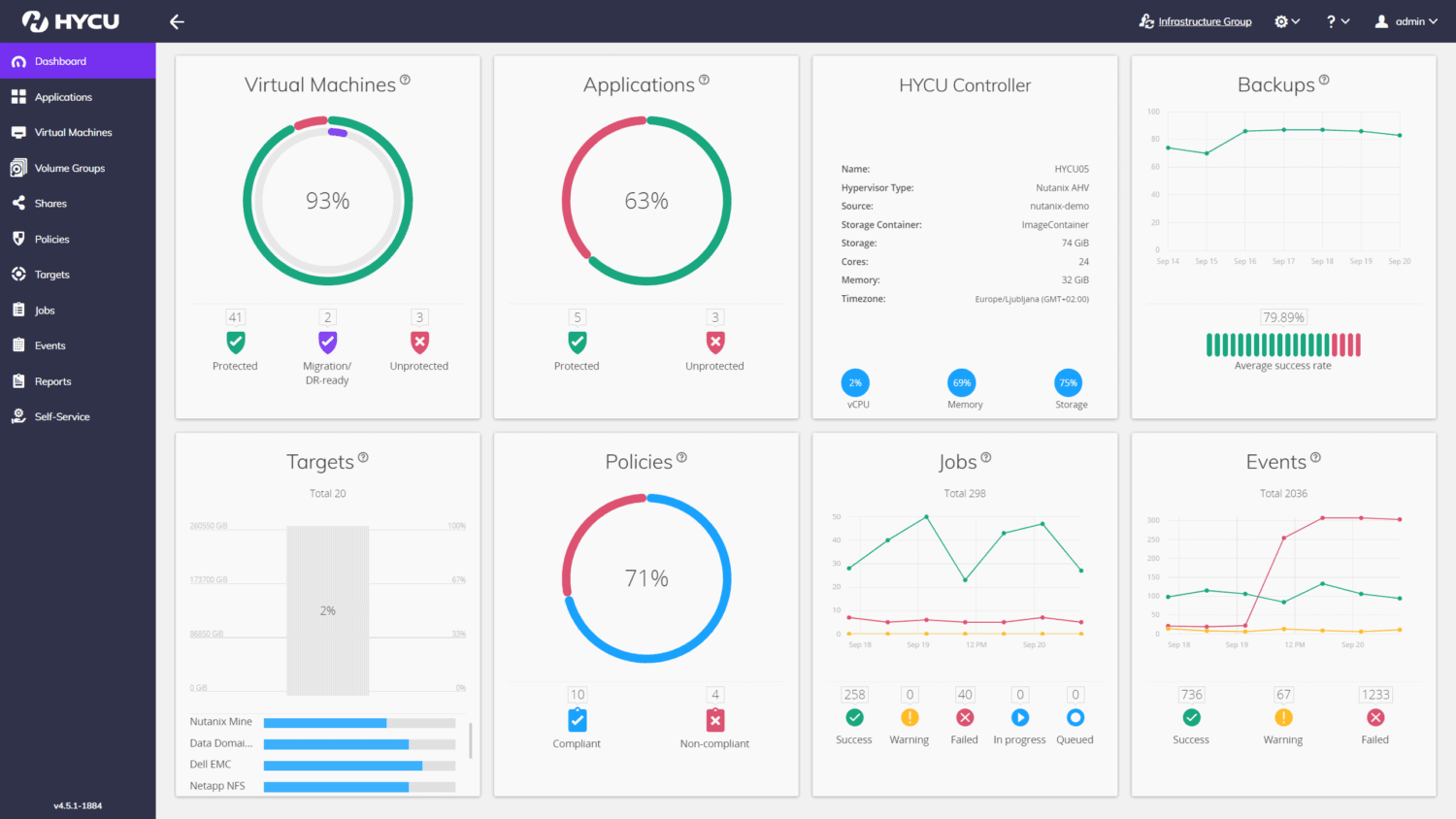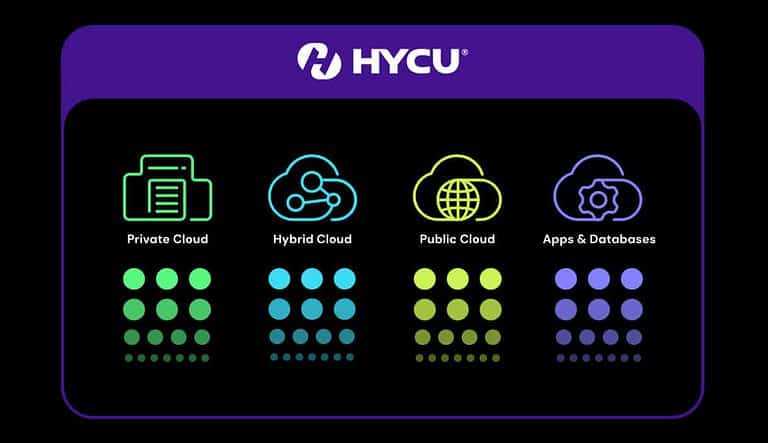Recently in Silicon Valley, we were guests of HYCU, a company generally characterized as yet another backup vendor. During HYCU’s presentation, the goal was clear: to convince us that the company is more than a backup vendor. HYCU bridges the gap between different clouds for data protection, disaster recovery and data migration.
Founded in 2018, HYCU did initially really focus on backups. Nutanix backups to be exact. We are now over four years on and HYCU’s offerings have expanded significantly and are becoming a player for traditional backup and data protection vendors to consider. The company is growing tremendously fast and is already active in 150 countries, has 350 partners and over 3,600 customers.
The SaaS solution HYCU provides is fundamentally to protect data. To do this well, it has chosen native support for hypervisors, both those from Nutanix and VMware and those from hyperscale cloud providers. It uses the tools that these platforms offer natively to provide the best possible service. For backups, HYCU uses the native snapshot functionality. As a result, these processes do not affect the performance of the workloads.
HYCU has also developed its own deduplication solution. Traditional deduplication requires a lot of computing power, HYCU has developed a lighter variant with, it says, better performance. This allows you to make backups from one cloud to another and still control egress costs (outbound data traffic).
To deliver this properly, HYCU will run a small VM in a Nutanix or VMware environment. With hyperscalers, this is not necessary. There, HYCU has a service running in each region that can perform these tasks.
Currently, HYCU offers extensive support for Amazon Web Services, Microsoft Azure and Google Cloud. Support for Oracle Cloud is limited to VMs. It does not currently offer support for Exadata and the Oracle Autonomous Database.
However, it does support various SQL servers in other clouds. These can also be protected using the HYCU solution, which actively checks the integrity of the database.
Overview
| Name | HYCU |
| Founded | 2018 |
| Industry | Enterprise software, SaaS, backups |
| Location | Boston, Great Lakes area |
| Employees | 200 – 300 |
| Founder(s). | Goran Garevski, Simon Taylor |
| Venture Capital | 140 million dollars |
| Notes |
What makes HYCU unique right now?
HYCU wanted to make clear to us that its origins are primarily in backups, but that it has much more to offer. In addition to backups, it also offers data protection in the form of ransomware protection and disaster recovery. Something that many IT professionals will still lump into the corner of backups.
What HYCU also offers is the ability to migrate VMs from one cloud to another with the push of a button. So you can migrate a VM from, say, AWS to Azure or Google Cloud with ease. Or from Nutanix or VMware to the cloud or vice versa. This is special because each cloud uses a different hypervisor with a different VM format. HYCU transforms in real time the VM to a different format so that it can be started at the destination of your choice. So a VMware VM can be transformed to a VM for Hyper-V, for example. HYCU also performs checks to ensure that everything continues to work properly and that a database remains intact.
HYCU is not the first to offer such a solution. At Veeam, they have been offering this for years. However, HYCU’s offering is very accessible. That’s quite unique. For businesses this offers opportunities to quickly migrate workloads to another cloud, something that can make a huge difference especially in terms of cost. Depending on the performance required, one cloud can be a lot more economical than another.

Cross-cloud protection
HYCU can offer this solution mainly because it understands and natively supports the platforms of all cloud providers. It doesn’t take shortcuts to develop something generic. The big advantage for organizations is that you can protect all your infrastructure from one console. Both multiple clouds and your on-premises Nutanix or VMware environment. Also, if a company has a project on the schedule that requires a lot of lift-and-shift, HYCU delivers a very pleasant workflow. With the push of a button, you move a VM to a completely different infrastructure.
No agent is involved, everything is natively supported. This gives you a complete overview within one portal. HYCU also has customer cases where an entire region had to be moved because a hurricane was coming, putting the current region at great risk. That went smoothly and in record time. So keeping that safe and within the desired regions is very easy.
The bridge to SaaS is being built
The only major criticism we had of HYCU during the presentation was the lack of SaaS support. Right now, you can only back up Microsoft 365. Not much more is possible yet, not even Microsoft Teams is among the options.
We were told that HYCU plans to drastically improve this in the near future. It feels that the competition also offers poor support. You might find a vendor that can backup 14 SaaS solutions. At HYCU, they think that’s not enough, considering there are 15,000 SaaS providers in the United States alone. The company did not want to go much deeper into it.
What will HYCU do?
The fact is that with a global supply of some 25,000 SaaS providers, going to support them one by one is impossible. So what exactly is HYCU planning? From here it becomes speculation, but we know HYCU is working on an intensive partnership with Okta. Our suspicion is that HYCU wants to start using Okta’s authentication and verification capabilities to access all sorts of different SaaS solutions and also offer backups that way.
Exactly how this will work and look remains to be seen. We expect an announcement soon. It would improve HYCU’s position significantly, however, if soon you could backup hundreds or thousands of SaaS solutions with a simple click.
Also read: HYCU’s Data Protection Platform adds Kubernetes support.
